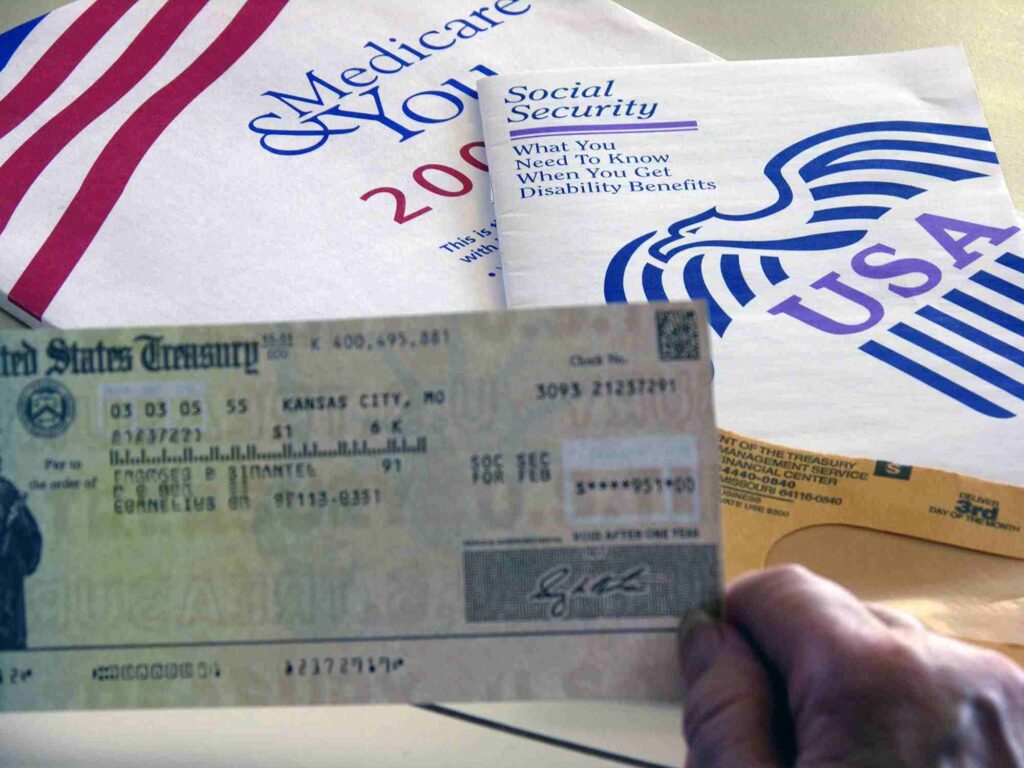With a warm and compassionate heart, Social Security checks weave a vital lifeline, lovingly sustaining millions of cherished retirees across the United States. This month, gentle changes are unfolding that may touch the how and when of your cherished payments, inviting us to embrace awareness and care. Whether you’re a long-embraced Social Security recipient or tenderly preparing to welcome these benefits, this moment lovingly calls you to stay informed and proactive, ensuring your peace of mind remains undisturbed.

Together, we unite in fostering a nurturing community where every individual feels deeply valued, empowered, and uplifted with hope, dignity, and clarity as they plan their vibrant financial future. In this article, we’ll dive into the updates, explain what these changes mean, and offer practical advice on how to make the most of these adjustments. With clear, easy-to-follow steps, you’ll be able to navigate these changes with confidence.
Social Security Checks Are Changing Starting This Month
| Aspect | Details |
|---|---|
| Transition to Electronic Payments | Paper checks for Social Security benefits are being phased out by 2025. Beneficiaries must set up electronic payments by then. |
| COLA (Cost-of-Living Adjustment) | Social Security benefits are receiving a 2.5% increase starting this year to help keep pace with inflation. |
| Overpayment Recovery Policy | The SSA is tightening rules on overpayment recovery, with up to 50% of benefits being withheld to recover debts. |
| Social Security Fairness Act | The Social Security Fairness Act is eliminating the Windfall Elimination Provision (WEP) and Government Pension Offset (GPO), potentially increasing benefits for some retirees. |
| Deadlines to Remember | The full transition to electronic payments must be completed by September 30, 2025. |
With a tender and open heart, the gentle changes to Social Security payments beginning this month weave a meaningful opportunity for cherished recipients to embrace with care and confidence. By lovingly staying proactive, you can ensure these updates wrap you in certainty rather than surprise. Transitioning to electronic payments, embracing the 2.5% Cost-of-Living Adjustment (COLA), and responding thoughtfully to overpayment notices are heartfelt steps to nurture your benefits with ease.
Together, we unite in fostering a compassionate community where every individual feels deeply valued, empowered, and uplifted with hope, dignity, and clarity as they navigate their financial journey. With the added benefits of the Social Security Fairness Act, now is a great time to review your Social Security strategy.
If you haven’t already, consider setting up electronic payments and keep track of important dates to ensure a smooth transition into the future. By taking the time to understand these changes and plan accordingly, you can navigate your retirement with confidence and financial security.

The Shift from Paper Checks to Electronic Payments
Why the Change?
As of this month, the Social Security Administration (SSA) is continuing its transition to electronic payments for Social Security and Supplemental Security Income (SSI) beneficiaries. This move is part of a broader government initiative to enhance efficiency, reduce fraud, and save taxpayer money. By September 30, 2025, all federal benefit payments, including Social Security, will be made electronically.
What does this mean for you?
If you currently receive your Social Security payments by paper check, you’ll need to switch to an electronic payment method by the deadline. This could be either direct deposit to your bank account or through the Direct Express® prepaid debit card if you don’t have a bank account.
What You Need to Do
Here’s how you can prepare for this transition:
- Set up Direct Deposit:
The fastest and safest way to receive your payments is through direct deposit. You’ll need to provide your bank account details to the SSA. Visit SSA.gov to set it up. - Apply for Direct Express®:
If you don’t have a bank account, the Direct Express® card is a government-issued prepaid debit card where your payments will be loaded each month. You can apply online or at your local SSA office. - Check Your SSA Records:
Ensure that your contact details are up to date with the SSA. This is essential for receiving important notices and updates about your payments.
Cost-of-Living Adjustment (COLA) for 2025
What is COLA?
The Cost-of-Living Adjustment (COLA) is a yearly adjustment to Social Security benefits to help beneficiaries keep pace with inflation. This year, Social Security benefits saw a 2.5% increase starting January 2025. This adjustment is crucial as it helps retirees cope with rising prices for essentials like food, housing, and healthcare.
How Does the 2.5% COLA Affect You?
- For the average retiree, this means an increase of $49 per month, bringing the typical Social Security payment up to $1,976 per month.
- If you’re a couple receiving benefits, your average monthly payment increases by $75, bringing the typical couple’s payment to $3,089 per month.
While the COLA adjustment helps, it’s important to note that some expenses—particularly healthcare—may still outpace this increase. It’s essential to budget wisely to ensure that the COLA increase helps you maintain your standard of living.
New Overpayment Recovery Policy
What’s Changing?
Starting July 24, 2025, the Social Security Administration will implement stricter rules around recovering overpayments. If the SSA determines that you’ve been overpaid, they will now be able to withhold up to 50% of your monthly benefits to recover that overpayment.
How Does This Affect You?
- If you’ve been overpaid and the SSA has already notified you, make sure you respond to their notice within 90 days. If you don’t, the SSA will start withholding a portion of your benefits to recoup the overpaid amount.
- If you’re unable to repay the full amount, you can work out a payment plan or apply for an exemption if you’re facing financial hardship. Make sure to get in touch with the SSA to discuss your options.
What You Can Do
- Review your payment statements regularly for any discrepancies or notices of overpayment.
- Respond quickly to any overpayment notices to avoid automatic withholdings.
Social Security Fairness Act: What It Means for Retirees
In another important update, the Social Security Fairness Act was signed into law in January 2025. This law repeals the Windfall Elimination Provision (WEP) and Government Pension Offset (GPO), which have long reduced Social Security benefits for people who worked in both government jobs and jobs covered by Social Security.
What Does This Mean for You?
If you’re a retiree who was previously affected by WEP or GPO, you may see an increase in your monthly benefits. The repeal is retroactive, so if you were impacted by these provisions in previous years, you may receive retroactive payments going back to January 2024.
The SSA is in the process of making these adjustments, and retirees affected by the WEP or GPO should start seeing higher benefit amounts beginning in October 2025.
Key Dates to Remember
- July 24, 2025: Starting this date, the new overpayment recovery policy begins. Be sure to respond to any overpayment notices within 90 days to avoid automatic withholding.
- September 30, 2025: Final deadline for transitioning to electronic payments. Paper checks will no longer be issued after this date.
- October 2025: Expected start of the new Social Security payment schedule for those affected by the Fairness Act.
Related Links
SNAP Just Got Easier — These New Retailers Now Accept Benefits on Uber Eats
Texas Expands SNAP for Hot Meals After Flooding — Here’s Who Qualifies Right Now
Oklahoma Drivers Could Get $500 from This Shocking Class Action — See If Your Car Is Eligible
The Impact of these Changes on Your Retirement Planning
Adjust Your Financial Strategy
With these changes coming into play, it’s a good time to revisit your retirement plan. Here’s a checklist to make sure you’re on track:
- Review your payment method: Make sure you’re enrolled in direct deposit or have a Direct Express® card set up.
- Adjust your budget: With the COLA increase and potential overpayment deductions, revise your monthly budget to reflect the changes.
- Plan for future overpayments: Stay on top of your records to avoid any surprises from overpayment recovery.
Maximize Your Social Security Benefits
If you haven’t already, consider delaying your Social Security benefits to maximize your payout. The longer you wait (until age 70), the higher your monthly benefits will be. This is a great way to increase your financial security, especially if you have additional time to save.
FAQs
1. What is the deadline to switch to electronic payments?
By September 30, 2025, all Social Security and SSI payments will be made electronically. Make sure to set up direct deposit or apply for the Direct Express® card before then.
2. How does the 2.5% COLA impact my benefits?
For most beneficiaries, the COLA increase will result in an additional $49 per month. This is designed to help offset rising living costs, although it may not fully cover all inflationary pressures.
3. What should I do if I receive an overpayment notice?
If the SSA informs you of an overpayment, respond within 90 days to avoid having your benefits withheld. You can arrange a repayment plan or contest the overpayment if you believe it’s incorrect.
4. How do I know if the Fairness Act affects me?
If you previously worked in a government job that wasn’t covered by Social Security, you may have been affected by the Windfall Elimination Provision (WEP) or Government Pension Offset (GPO).




